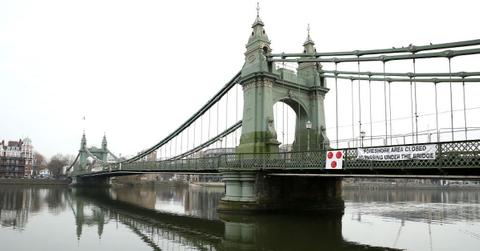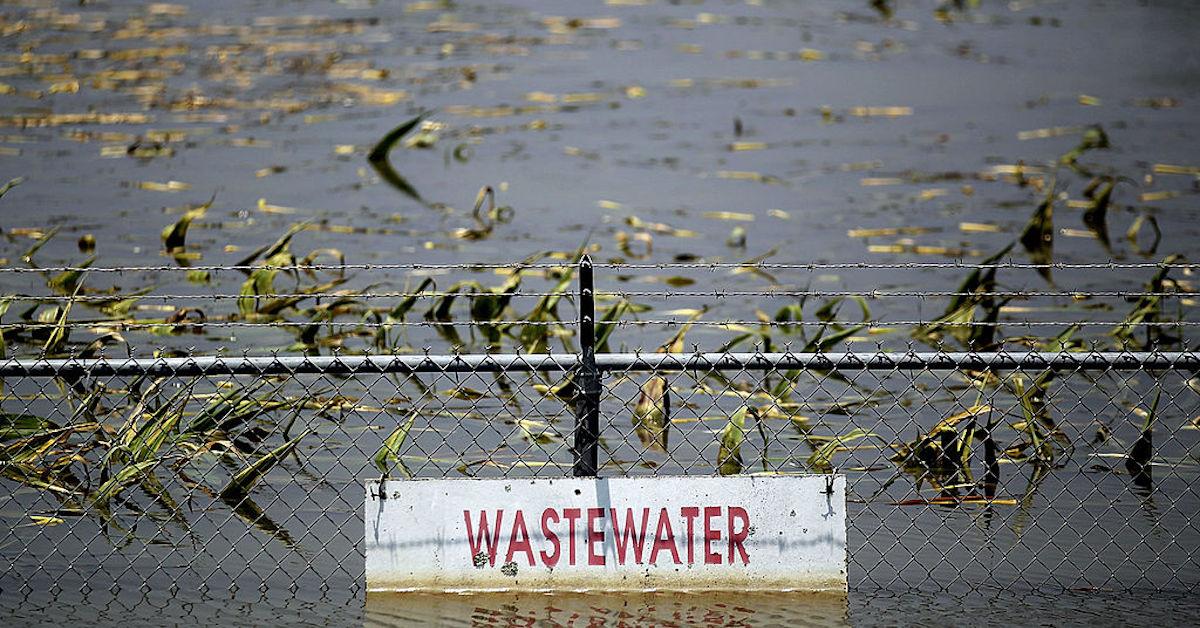In 2020, U.K. Water Companies Dumped Shocking Amounts of Sewage Into Rivers
Updated April 7 2021, 3:16 p.m. ET

Nobody particularly enjoys thinking about what happens to human waste once it's flushed down the toilet, but unfortunately, some shocking news has come to light regarding where much of England's sewage went last year. In 2020, water companies were guilty of dumping unregulated amounts of raw human waste into U.K. rivers nationwide. Needless to say, activists across the pond are seriously furious right now.
“Today’s sewage pollution figures are completely shocking… While the government is proposing new laws to be agreed for 2022, the sewage pollution crisis is here today and needs swift, decisive and enforced action," said Hugo Tagholm, of Surfers Against Sewage, as per Consultancy.uk. "We will not allow government and water companies to just kick this issue into the long grass... What we need now is radical action."

The U.K.'s sewage crisis is ongoing.
Although the U.K.'s Environment Agency (EA) generally allows water companies to release limited amounts of sewage into rivers and streams every year, following only very severe storms to prevent flooding and backups, companies exceeded their allotted amounts by a landslide in 2020. According to The BBC, data shows that there were 403,000 spills in total, equaling out to about 3 million hours, and United Utilities had the longest duration of spills.
Various waterways such as the River Chess — which are home to native species such as the great white egret and brown trout — have been affected by sewage spills consisting of waste, wipes, and condoms. Normally many of these rivers are also open to swimmers, kayakers, paddlers, and dog walkers. Although visitors are prohibited during sewage spills, this still endangers those who visit on a regular basis. That said, it's a messy and smelly situation, which is undoubtedly harming surrounding ecosystems, communities, and beyond.
U.K. water companies have been under fire for years now – in 2019, the Consumer Council for Water revealed that water bills are the most common form of debt in Britain among low-income families, according to Consultancy.uk. In the last few years, the number of people that were put on "reduced water bill rates" has risen by about 50 percent. Now, consultants are working with these companies to find ways to improve their rates and services, but it seems as though they are still failing to do so.
Why is sewage being dumped into rivers?
As previously mentioned, water utilities are allowed to dump water in nearby rivers after severe storms. But the number went up by about 37 percent from 2019 to 2020 — why? According to The Guardian, increasing populations and climate change means sewage plants will inevitably overflow more frequently. But, plans are being implemented to better monitor sewage discharges. The EA is also calling for investments into better systems, with plans to invest £1.1 billion (about $1.5 billion USD) over the next four years.
Officials also say that two of the most common factors behind a sewage backup are flushing baby wipes and pouring grease down the sink. So, short term, residents should monitor what they flush down the toilet and pour down the sink. Meanwhile, U.K. residents should continue to advocate for better water and sewage systems, and do everything they can to curb climate change, to ultimately mitigate the effects of these severe storms.
